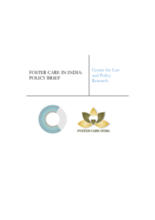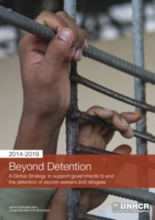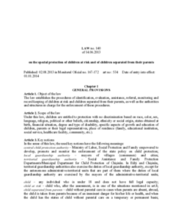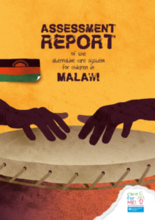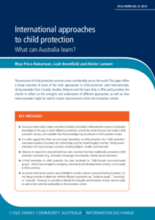Displaying 1161 - 1170 of 1796
This country care review includes the care related Concluding Observations adopted by the Committee on the Rights of the Child as part of its examination of the second periodic report of the Holy See under Convention on the Rights of the Child at its sixty-fifth Session (13 Jan 2014 - 31 Jan 2014).
This country care review includes the care related Concluding Observations adopted by the Committee on the Rights of the Child as part of its examination of the combined second to fourth periodic report of the Congo under Convention on the Rights of the Child at its sixty-fifth Session (13 Jan 2014 - 31 Jan 2014).
Infant Mental Health Journal has published an important Special Issue on Global Research, Practice, and Policy Issues in the Care of Infants and Young Children at Risk. This article documents an initiative to establish a replicable professional model that would direct the child welfare system in the Nizhny Novgorod Region away from institutional care and toward services for young children and their families that reduce the risk of institutionalization.
This policy brief reviews the legal framework for foster care in India, including an analysis of the current provisions of foster care along with the rules and schemes on foster care framed by states in India, with a focus on Delhi and Goa.
This report, authored by the United Nations High Commissioner for Refugees, calls for a global strategy to prevent the detention of asylum-seekers and refugees in countries around the world, with an initial focus 10+ "focus countries." Among the Strategy's three main goals is the call to end detention of children, which requires a new legal and policy framework, the implementation of the "best interests" principle, alternative and appropriate reception and care arrangements for children (including foster care), and the provision of age-appropriate information to the child.
This Human Rights Watch report gives a detailed overview of the situation faced by children with disabilities in orphanages in Russia.
Law No. 140 on the special protection of children at risk and of children separated from their parents entered into force on 1 January 2014.
This report from SOS Children’s Villages examines the range of services available to families in Malawi to prevent family separation as well as the administrative measures and national policy frameworks governing these services.
This paper offers a broad overview of some of the main approaches to child protection used internationally. Using examples from Canada, Sweden, Belgium and the Gaza Strip, it offers policy-makers the chance to reflect on the strengths and weaknesses of different approaches, as well as how these examples might be used to inspire improvements within the Australian context.
This book focuses on, and reviews, a selection of laws related to the rights of children in South Africa.



